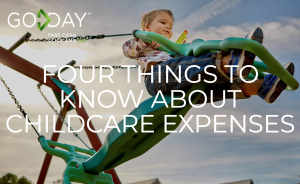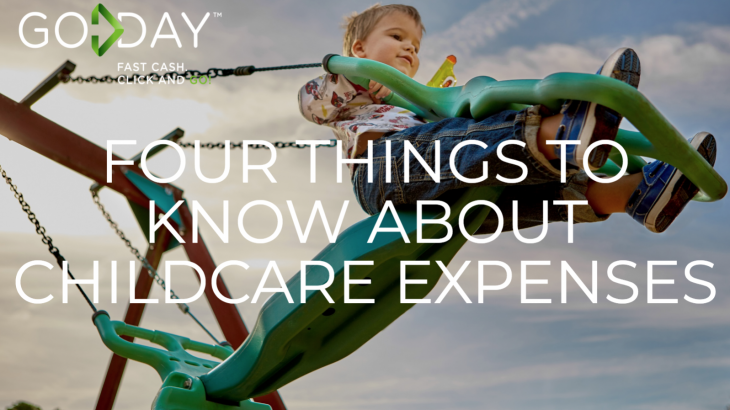
Whether you’re paying for before and after school programming, daycare, or have a nanny – childcare expenses are one of the most talked about fees for parents. According to Money Sense Magazine (and most parents) finding childcare can be a difficult task. But it also shows that the average cost for a child in full-time daycare within the Greater Toronto Area is just under $1,750 a month. With the highest fees for childcare in Ontario and the lowest in Quebec, capacity is the main reason these costs continue to rise. As the Globe and Mail reports, the most recent family survey by Statistics Canada shows that approximately 43 percent of parents have used some sort of child-care arrangements in Ontario – the most expensive province for child care.
With election season just around the corner, childcare is one of the main topics of discussion at all levels of government. For instance, the Government of Ontario has announced their childcare plan, even using the word free! And it has definitely caught everyone’s attention. But as an issue that definitely needs to be addressed, the Globe and Mail took a closer look at the free licensed childcare that is being advertised. Of course, it sounds like any parents’ dream, but after digging a little deeper into the Government of Ontario’s plan to deliver free licensed childcare for preschoolers, it has the potential to create more demand in an already demanding market. Not to mention that cost will continue to be the main issue in terms of access because we all know nothing is always free.
Finding The Childcare For Your Budget
Do you know what kind of childcare is best for you? Besides licensed childcare and preschool, there are other types of arrangements that are available that you can also look into. These options may include unlicensed home care and private care, nannies and unpaid relatives, such as grandparents. And this all depends on what is best for you and your family. And because of this, licensed childcare and proposed childcare changes may not be an option for some parents. For example, licensed childcare centers only operate certain hours, and for those who don’t work the regular 9-5 hours, many government run operations won’t be available. This is where other childcare options such as a nanny or family members may be a better fit for you. But like anything, you must do your research before jumping into something like unlicensed care. For places like Ontario, the government does not regulate unlicensed care. This means that these unlicensed caregivers are not inspected by the government, and are not required to meet specific provincial standards.
Claiming Taxes
If you pay for childcare, you may be able to claim those expenses on your tax return. Of course, there are a few requirements, but Turbo Tax helps to break those down. Each child for whom you claim expenses must meet the Canada Revenue Agency’s eligibility requirements. But when it comes to your taxes and Canadian taxpayers can claim up to $8,000 per child for children under the age of seven years at the end of the year and $5,000 per child for children aged seven to sixteen years old. You can claim childcare costs paid to daycare centers, day nursery schools, caregivers such as nannies, day camps, and overnight boarding schools and camps that provide lodging. To be eligible to make a claim, day camps and day sports schools must have a primary purpose of providing child care. Payments made to relatives under the age of 18 years — such as your older children, or a niece or nephew — cannot be claimed. If your employer reimbursed any portion of your childcare expenses, that portion cannot be claimed.
Government Supports
With how many different types of childcare there are, pricing and supports are different between provinces. For example, in Ontario, every center- and home-based childcare provider is responsible for setting their own fees and depending on your income, you may qualify for government grants and/or subsidies. Canada also has something called the Canada Child Tax Benefit which is a tax-free monthly payment made to eligible families to help them with the cost of raising children under 18 years of age. So how does the Canada Child Tax Benefit work? The Canada Revenue Agency (CRA) your information from your income tax and benefit return to calculate how much your Canada Child Tax Benefit payments will be. To get the Canada Child Tax Benefit, you have to file your tax return every year. Even if you did not have income in the year, filing is a must to qualify.
Costs Continue To Rise
Despite childcare costs being addressed, in 2017, childcare costs across Canada have risen faster than inflation in 71 percent of cities. This is the fourth report conducted by report by the Canadian Centre for Policy Alternatives (CCPA), to provide a picture of the median costs for child care in Canada’s 28 largest cities, including full-time care for infants (under 18 months to two years), toddlers (two to three years) and preschoolers (four to six years). This study also took a look at waitlists and for the first time, also analyzed the costs of childcare in rural areas. And surprisingly enough, in rural areas of Ontario and Alberta, the fees are not significantly cheaper than in nearby cities.
When it comes to childcare, you want the best for your children. But depending on where you live that can come at a price. But there is hope! Now more than ever, all levels of government are showing interest in childcare costs. So no matter what kind of childcare or supports you are looking for, there are many questions to ask to find out what childcare is best for your lifestyle. Not to mention, there are numerous resources out there to help including how to find the best childcare for your budget, how to search for childcare options near you, and how to get government subsidies and grants to help you pay for childcare.



